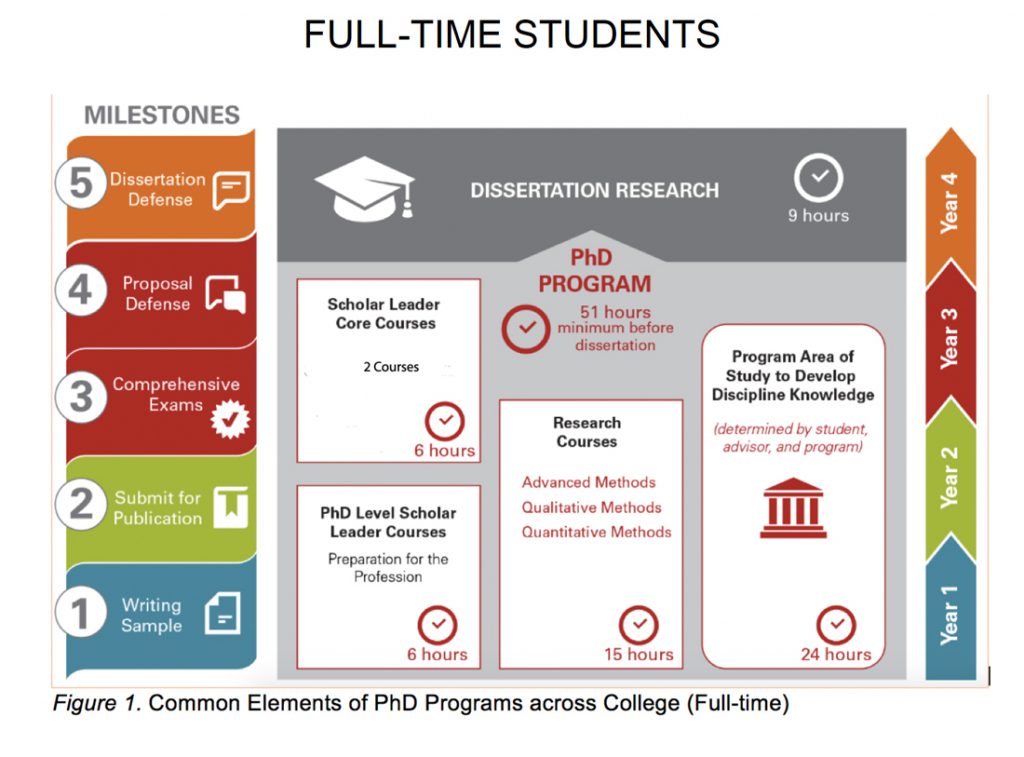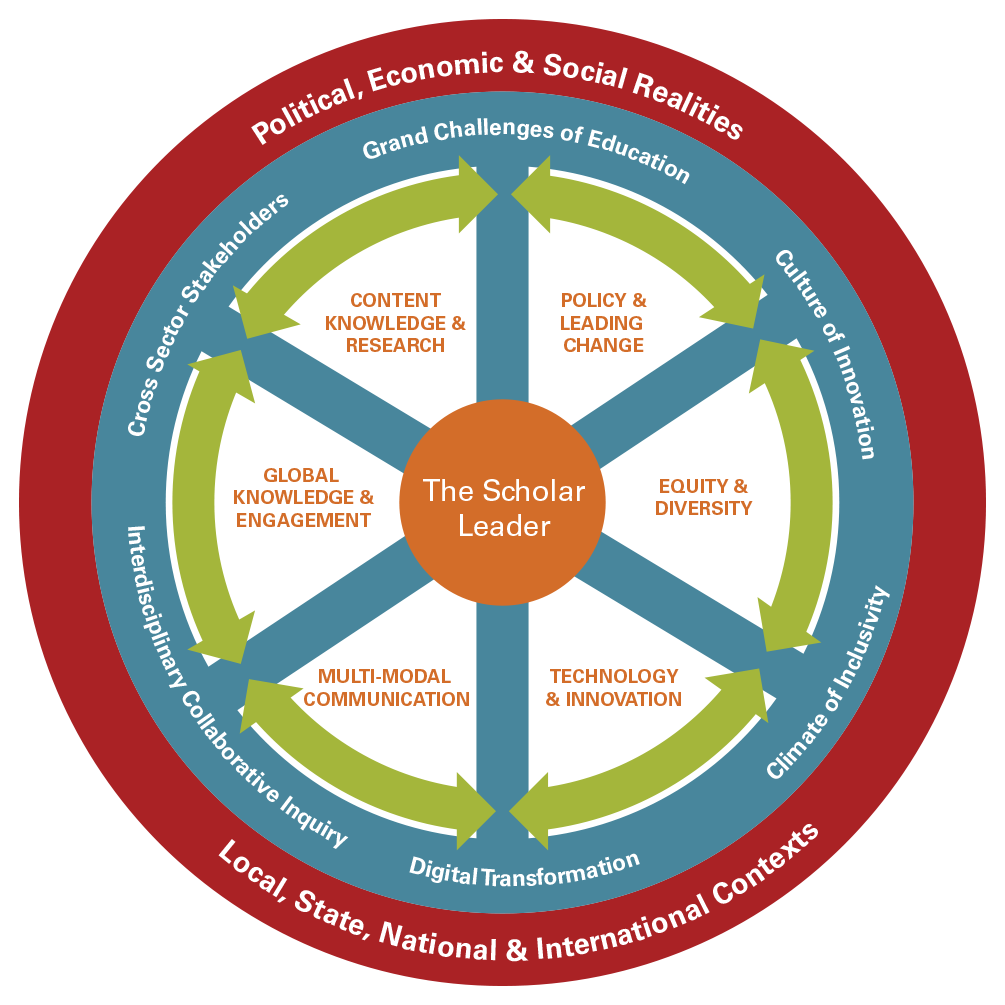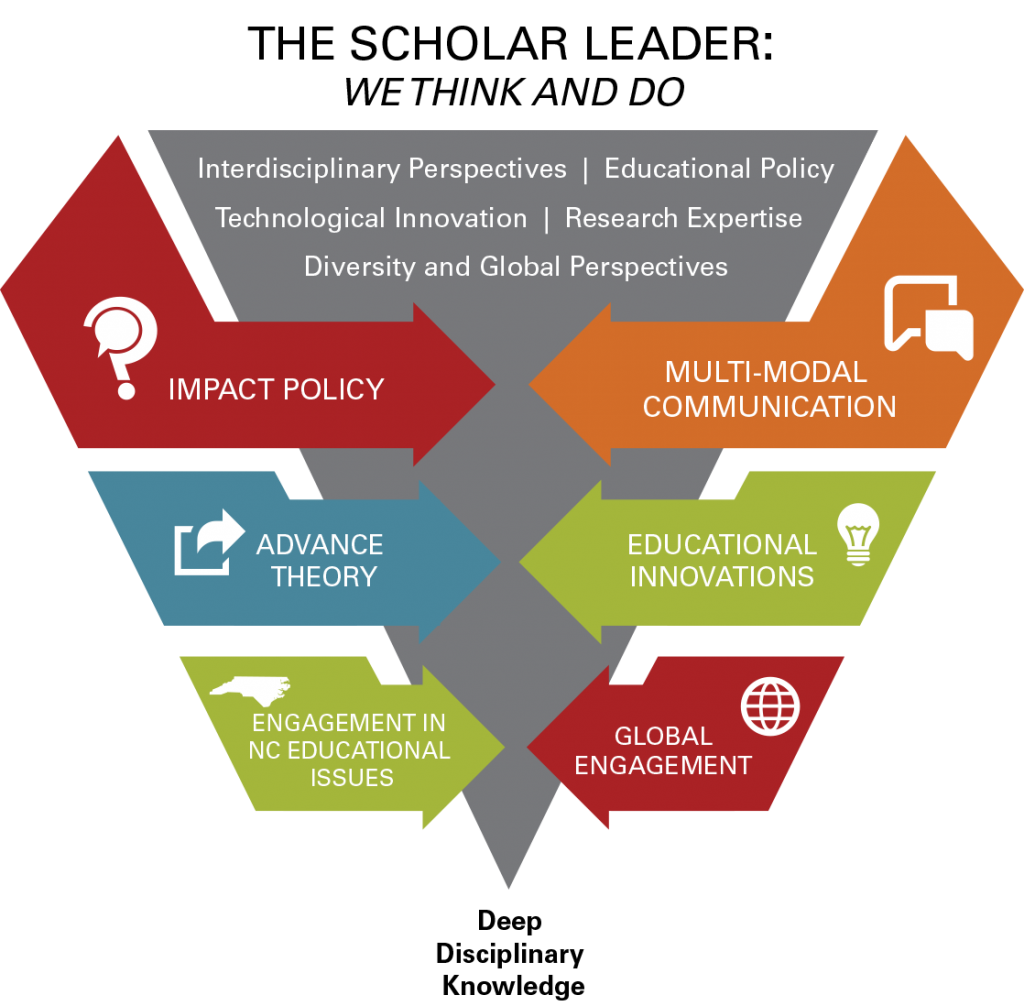Shaping Scholar Leaders
A shifting education landscape demands a different kind of leader. That's why we've redesigned our Ph.D. programs.
The New Ph.D.: Mastering Content and Shaping Policy
We in the College of Education have reimagined the Ph.D. Our focus is on forging exemplary scholar leaders: teachers, counselors, professors, administrators and policymakers who master the content of their disciplines and are prepared to lead and manage change in a diverse society and a digitally connected world.
The scholar leader Ph.D. graduate will be prepared to lead and influence policy decisions at the local, state, national and international levels to solve the grand challenges of education. The program is developed around NC State’s strengths in technological design, innovation, research-scholarship, community engagement and social entrepreneurship. The doctoral experience will be within a rich culture of inquiry, evidence and action.
RE-DESIGNED PH.D.S & PROGRAM AREAS OF STUDY

Educational Leadership, Policy and Human Development (ELPHD)
- Adult, Workforce & Continuing Professional Education
- Counselor Education
- Educational Evaluation & Policy Analysis
- Higher Education
- Learn More

Learning and Teaching in STEM (STEMED)

Teacher Education and Learning Sciences (TELS)
- Educational Equity
- Educational Psychology
- Elementary Learning Sciences
- Learning, Design and Technology
- Literacy and English Language Arts Education (LELA)
- Social Studies Education
- Learn More
*Not accepting applications
About the Programs
Common Elements of Programs in the College

The scholar leader Ph.D. programs capitalize on NC State’s strengths as a hub of technology, innovation, outreach, research and entrepreneurship. Throughout the doctoral experience, the aim of each program is to develop a culture of inquiry, evidence, and action in our graduates.
Course sequences and structured learning experiences are designed so that full-time students complete their degree programs in four years or less, and part-time students in six years or less.
Each Ph.D. degree has the following elements for a total of 60 hours:
- Two cross-college Scholar Leader Core Courses (six credit hours)
- Scholar Leader: Diversity and Equity in Schools and Communities
- Scholar Leader: Systemic Change in Education and Society
- Two Core Courses within the specific Ph.D. program (ELPHD, STEMED, or TELS) (six hours)
- College-wide research courses: quantitative, qualitative and advanced (15 hours)
- Program Area of Study to develop discipline knowledge (determined by student, advisor and program)
- Dissertation research (nine hours)
Local, State, National & International Contexts

Redesigning these three Ph.D. programs involved a fundamental rethinking of the competencies needed for educators, counselors, teacher educators, leaders, researchers and policy makers. Our Ph.D. programs prepare scholar leaders who will be future-oriented, able to rethink the goals of education, and capable of leading and managing change in a diverse society and digitally and globally connected world. These three programs prepare scholar leaders.
The scholar leader is a broadly educated individual with deep content knowledge in at least one specialty area and skills in research, policy, equity and diversity, technology and innovation, global understanding and impact, and multimodal communication (Danowitz et al., 2015).
Stimulus Paper – Imagining the Future of Doctoral Education: The Scholar Leader

We Think and Do
As scholar leaders, graduates of our Ph.D. programs will confront real-world issues using the following proficiencies:
- Deep content knowledge and research expertise
- Understanding of policy and its implications for education
- Broad perspectives and effective responses to diversity as they relate to educational and societal inequalities
- Ability to engage in and use cutting-edge technology as a tool for innovation and change in an increasingly globalized world
- Multimodal communication practices that enable graduates to engage in and translate research to different partners and stakeholders
- Knowledge and capacity to engage global educational change initiatives